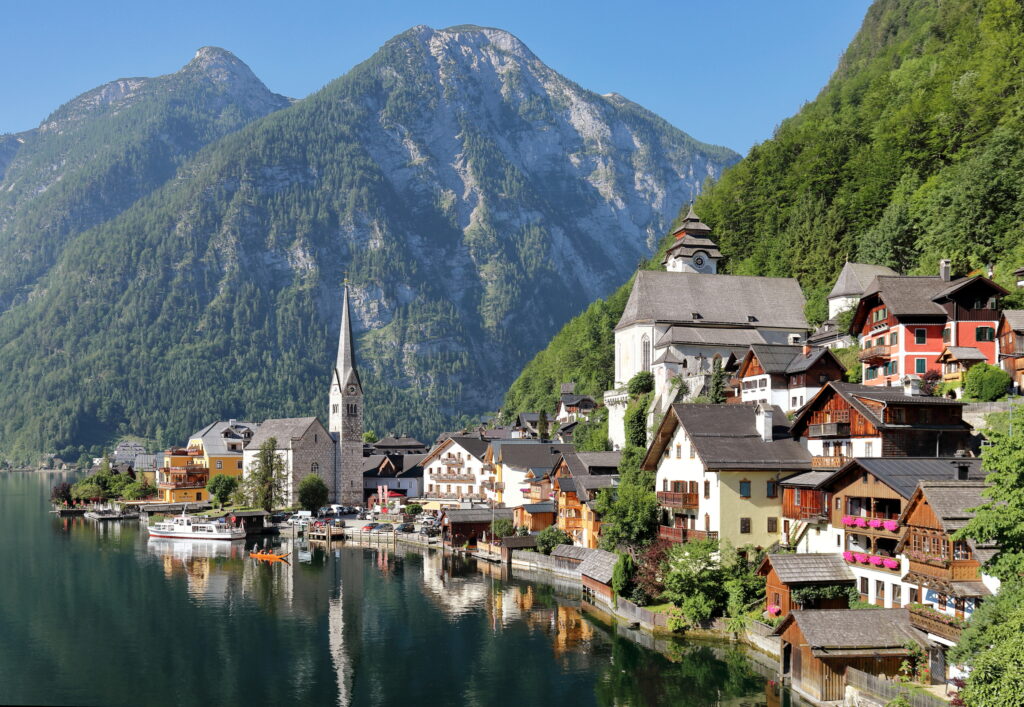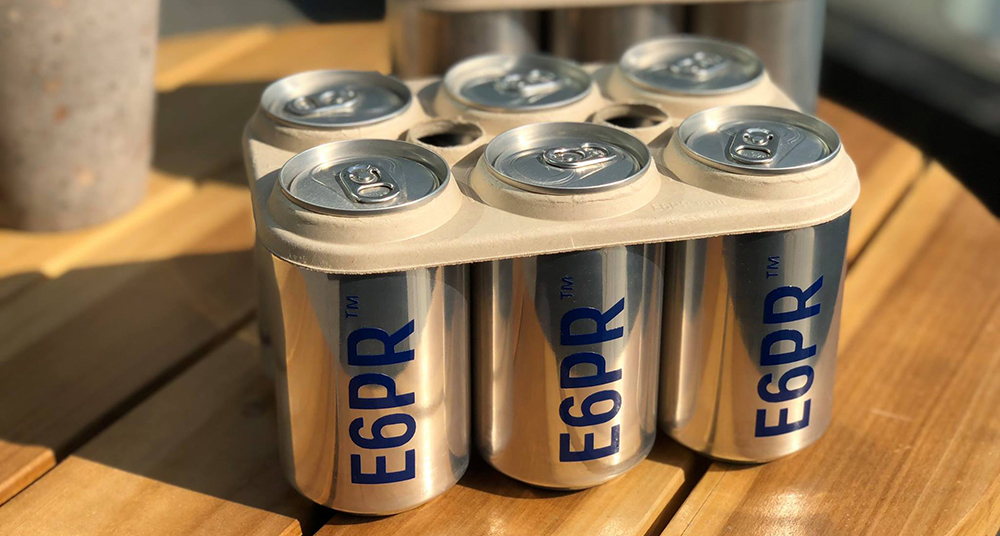
(photo: Austria, home of beer poop)
Gold miners in California in the 19th century were thirsty folks who drank quite a lot of steam beer. We’ve dug up so many news nuggets from around the world for this issue’s Roundup that we’re thirsty for a few liters ourselves. Have a seat here at our campfire and let’s trade some stories…
Careful where you’re digging! Current Biology reported in mid-October that “the first molecular evidence for blue cheese and beer consumption in Iron Age Europe” was discovered in salt mines used 2700 years ago in what is now Austria. Researchers came to this conclusion after analyzing paleofeces. That would be naturally preserved ancient poop.
Not to be oudone, archaeologists working in southwest China discovered evidence of ‘beer’ having been consumed 9000 years ago. Alas, they did not find any nuggets of poo. As the Smithsonian magazine reported in early September, unearthed vessels contained residue of a fermented beverage using rice, tubers, and fungi. The vessels were also near two skeletons. Researchers speculate that it was consumed to honor the dead.
How about beer to honor life? Multiple outlets in America reported on a 106-year-old woman in Pennsylvania who drinks a Yuengling lager every day. When the local brewery heard about this, they sent her a truck full of beer. Debbie Yuengling, a sixth-generation family member involved in the brewery, even visited to share a beer with her.

Breweries that have survived generations are rare–all the more so are pubs. The Lamb & Flag, an Oxford, UK pub that’s over 400-years-old, was saved from closure by an eclectic group of fans and local business people. In the 1930 and 40s, it was a popular meeting spot for writers that included JRR Tolkien (The Hobbit and Lord of the Rings) and CS Lewis (The Lion, the Witch and the Wardrobe). Now, real ale will fuel current and future generations of writers thanks to a long-term lease.
So there’s that famous joke line that starts, “A man walks into a bar”, but this is no joke. At a bar in Charlotte, North Carolina, a man walks in, orders, and then casually consumes it out on the patio without anybody noticing that… it’s Mick Jagger of the Rolling Stones. He even got somebody to snap a picture, which he put up on social media. Our forensics team cannot determine from the picture what he was drinking and we’re unable to analyze his poo at this time.
Forensics teams were hard at work after the January 6th riots in Washington, DC where insurrectionists stormed the capitol building. Many were identified, arrested, and have already been charged. One, Mr. Andrew Ericson, recently pleaded guilty after having broken into House speaker Nancy Pelosi’s office. He also admitted to having stolen a beer from her mini fridge. Nope–don’t have to analyze the poo. Video shows it was a Corona Light.
Not all of US politics is the shitshow that it appears to be. Democrats and Republicans are able to work together when the end goal is good beer. In late October, NPR in America reported on the results of the fourth annual Anheuser-Busch Brew Across America Congressional Brewing Competition. Five pairs of congressional members collaborate with breweries across America and bring their results to the capital for judging. The hitch: the pairs must include opposing political party members. Of note, the ‘brewers used ingredients from their home states or at least beers themed after them’. We propose this project be brought to Japan!
While beer helps one society bridge political dysfunction, in another it helps to charm the media. The Times of Israel reported in late October that the Israel National Drone Initiative delivered sushi, beer, and ice cream to members of the media via drones. It was part of a demonstration to highlight their real-world delivery capabilities. We’ve reported on this phenomenon before, albeit with wheeled robots (like Heineken’s). Scientists, when you can teleport beer to our fridges, please let us know.
Speaking of science-fiction becoming reality, Tesla CEO Elon Musk is in the news again (is he ever out of it?). This time, surprisingly, it’s about the brewing of a cyber-truck inspired “Giga Beer”. Musk teased the beer while celebrating the opening of his new Gigafactory outside Berlin. The bottles for the beer, which he displayed on a large screen, are weirdly angular like the trucks. We would not be surprised if Musk becomes the first to launch or operate a brewery in space.

Returning to earth… literally, speaking about returning to earth, there was a beer festival held at a graveyard in England back in late September. Okay, so it was actually the ‘churchyard’ of the 1000-year-old St. Mary’s Church in Stockton-on-Tees. Some guests of the four-day festival, which raises funds for the church, took pictures, as you do, sitting around graves with their drinks set on the gravestones. When the pictures hit social media, the expected fury erupted. Those 9000-year-old skeletons in China must be shaking their heads.
We are shaking our heads after Boston Beer company’s stock tumbled 26% on the back of bad news about its hard seltzer sales. The seltzer boom, which we’ve poked fun at in this column before, has fizzled out like so many frothy bubbles. Americans, we’ll say it again: you should just drink sparkling sake. Even future scientists, studying your paleofeces, will laugh at you: “They had 9000 craft breweries and they were drinking this stuff?!”
Before there can be future scientists, however, humanity must solve the immediate threat of ecological collapse. Waxing serious now, we are pleased to report that breweries around the world continue to show dedication and meaningful action toward this cause. Budweiser recently announced that it is sponsoring a solar panel initiative that will provide renewable energy to one hundred Irish pubs. This is just the start. Earlier this year, Budweiser also announced that all Budweiser brewed in Ireland was done so with renewable electricity from wind and solar farms.

In the New England region of the US, craft breweries are teaming up to tackle the problem of plastic ‘toppers’ that are used to hold four and six-packs together. Realizing that the city’s recycling facilities can’t process them–even though they’re recyclable in theory–breweries turned to non-profit MassRecycle to develop a tailored solution to the problem: a collection program for reusing and recycling them. Meanwhile, as media outlet Maine Public reported, a Mexican company has begun producing a topper made of agricultural waste and fibers that is compostable. A company that operates a mobile canning line in the New England area then invented a device that will stamp them onto cans. Seven craft breweries across multiple states of the region now use them.
We’re approaching the end of the year, when we at the Japan Beer Times begin making decisions about charitable giving. We, too, focus our efforts on environmental endeavors. While we are committed to using sustainable resources, we believe we must do more. In years past we have donated to notable forestry, oceanographic, and climate research organizations. We continue to research our options and hone our approach. We salute our colleagues in the beer industry that are doing the same.
This article was published in Japan Beer Times # () and is among the limited content available online. Order your copy through our online shop or download the digital version from the iTunes store to access the full contents of this issue.



